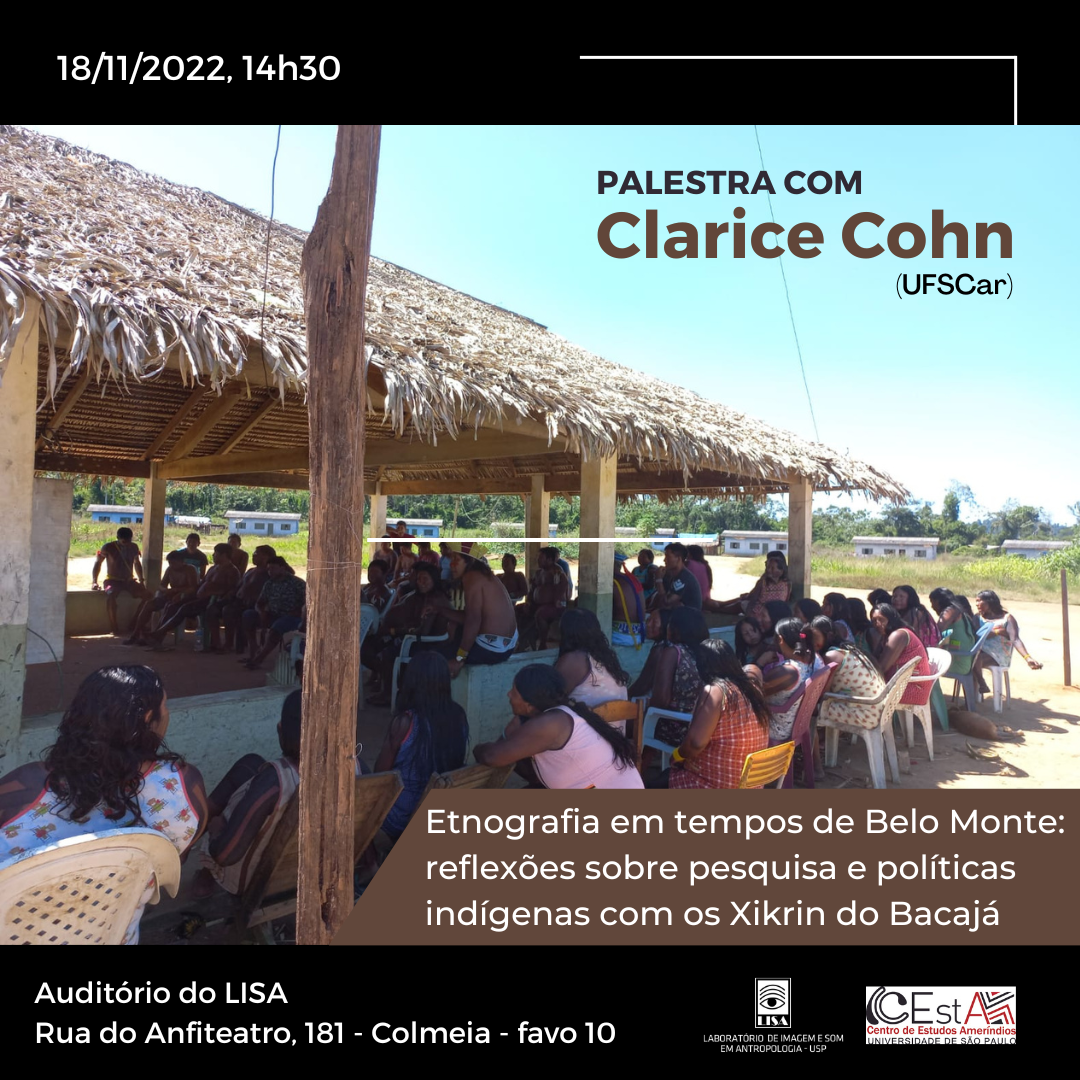Ethnography in the times of Belo Monte: reflections on indigenous research and policies with the Xikrin do Bacajá
Since 2009, I have been following the Xikrin do Bacajá in their work regarding the construction of the Belo Monte Hydroelectric Power Plant, which impacts its river, a tributary of the Xingu River in its Volta Grande, where the so-called Reduced Flow is located. of the work. With the drought of the Xingu, Bacajá has also dried up, impacting their lands and their lives. The lecture covers two main points: the first, which can be defined as methodological, deals with the impacts on the anthropologist's relationship with this people, which completes three decades, having effects on ethnographic work; I argue that, in addition to the kinship I experienced until then, through which they dedicated themselves to changes in my body, in my diet, and in teaching efforts so that I could effectively learn and be a voice for those who do not usually hear them, I started to to experience with them, in the face of countless defeats and struggles, an alternation between kinship and enmity, which I seek to demonstrate to be the type of alterity relationship that defines them, in doing themselves and others, sometimes Mebengokré, sometimes enemies. In the second, which is directly linked to the first by their expectation that I could act as their partner, I deal with the way in which they move from war to politics, in their confrontations with the State, the entrepreneur and her outsourced services, the MPF , among others, from the licensing process to the operation of the plant, reflecting on the different ways of doing politics and a reflection, with them, on the limitations of the policies of the kuben, the non-indigenous, who fail to listen to them and are ineffective in responding to their demands. Therefore, from the limitation in admitting indigenous knowledge about the impacts on the rivers and their lands, to the way these bodies have acted, passing through ethics in politics, I accompany the Xikrin in their new perceptions of what the State and politics are. non-indigenous people, and how they have been working to reinvent a warlike way of doing politics.


